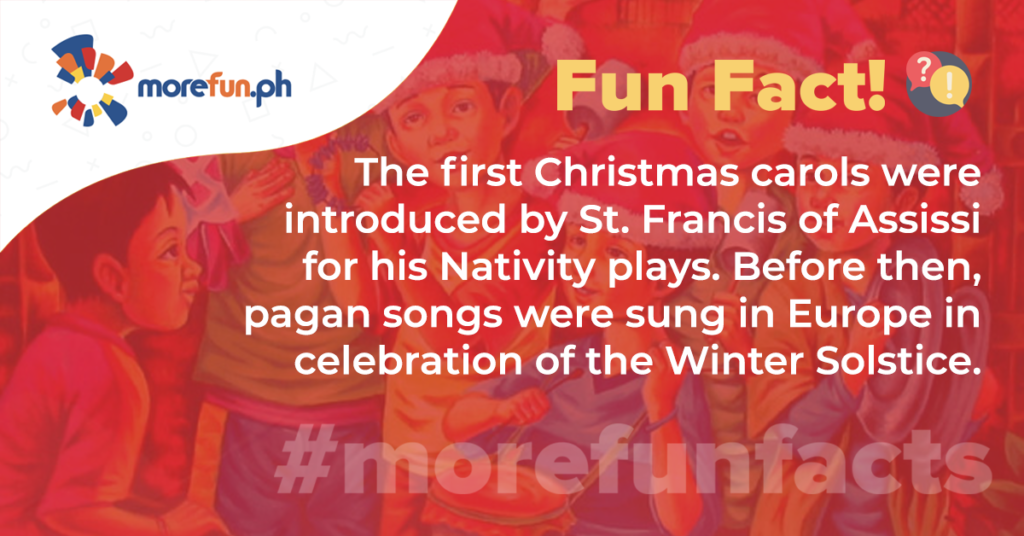Caroling in the Philippines
Yet another Yuletide tradition in the country, as is the case with other countries that celebrate Christmas, is caroling.
In Australia, Africa, and New Zealand, carols take the form of outdoor concerts that are held in cities and towns across their respective countries. In Poland, Christmas carols are sung until February 2, which is celebrated by Christians as the Feast of Candlemas (the Presentation of Jesus Christ at the temple).
In Greece, just like in the Philippines, children go out and sing carols from house to house during the Christmas season. In Greece however, the children use an instrument called a triangle to sing folk carols. After singing, the children would ask for and be given edible gifts such as dried fruit, egg, nuts, or confectioneries.
Depicted in this painting by Nikiforos Lytras is a group of Greek children singing traditional Christmas songs (called the Kalanda) in exchange for edible gifts.
In our country, children prefer to group up and hop from residential houses to commercial establishment singing classic Filipino Christmas fares like Ang Pasko ay Sumapit, Himig ng Pasko, Pasko Na Naman, and Namamasko, as well as popular foreign yuletide tunes like Joy to the World, Jingle Bells, Silent Night, and We Wish You a Merry Christmas.
However, unlike their counterparts in Greece, Filipino children use makeshift instruments made from recycled materials. Their tambourines are usually made from flattened bottle caps tied around a steel cable and their drums are repurposed biscuit tins, oil cans, or used soda bottles.
Although caroling is not expected until the first day of Simbang Gabi (December 16), groups of children can be seen roaming around neighborhoods with their improvised musical instruments as early as the first week of November (after All Saints Day).
After belting out their Christmas tunes, the expectation is that they might be rewarded with some cash, usually in the form of loose change. After receiving their reward, the children will then sing the traditional carol song of gratitude:
“thank you, thank you, ang babait ninyo, thank you!”
(“thank you, thank you, you truly are kind, thank you!”)
Going out from place to place to sing Christmas carols is not entirely limited to children though. Church organizations, civic organizations, and even groups of friends use the holiday season as a chance to raise funding for their advocacies (or maybe just some spending money for the holidays).
